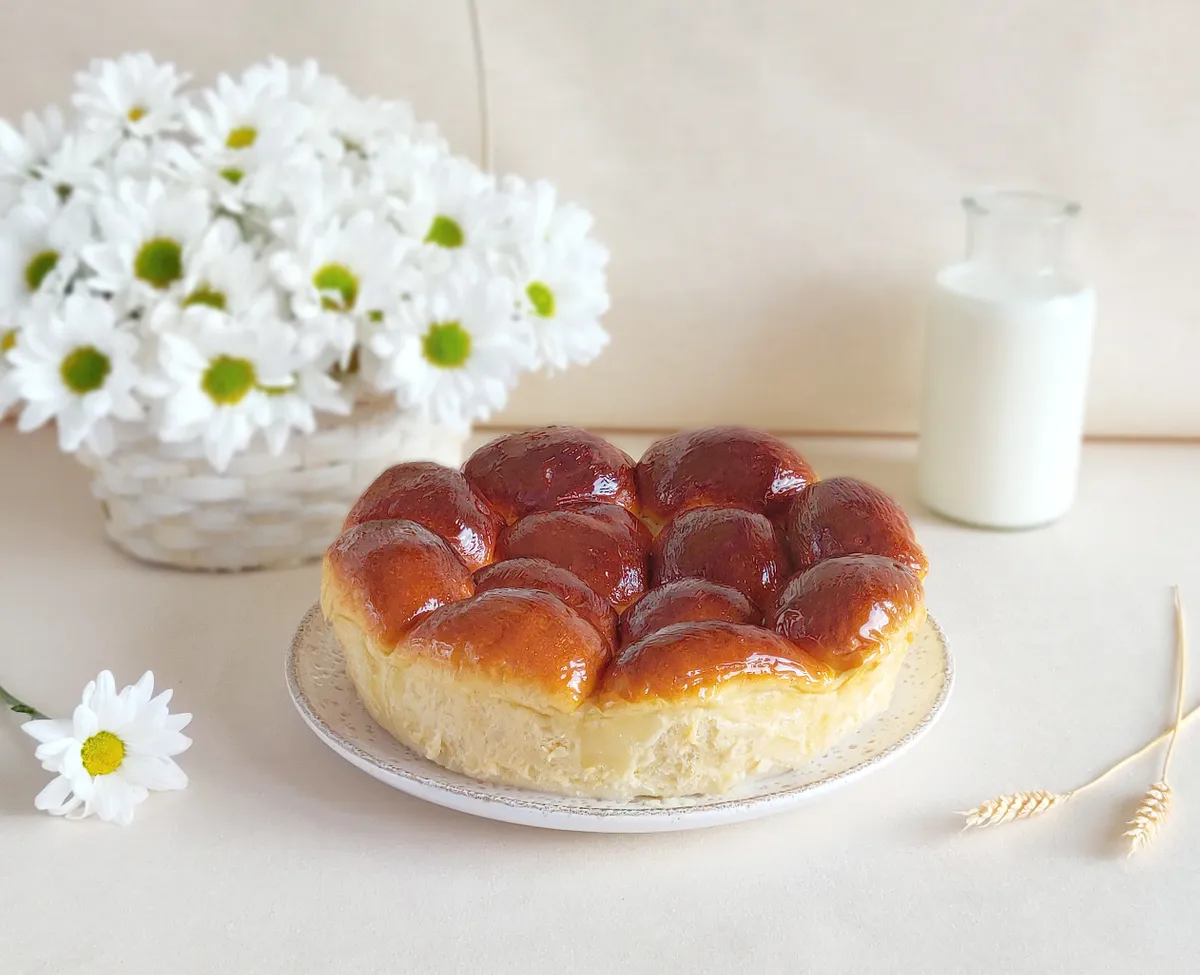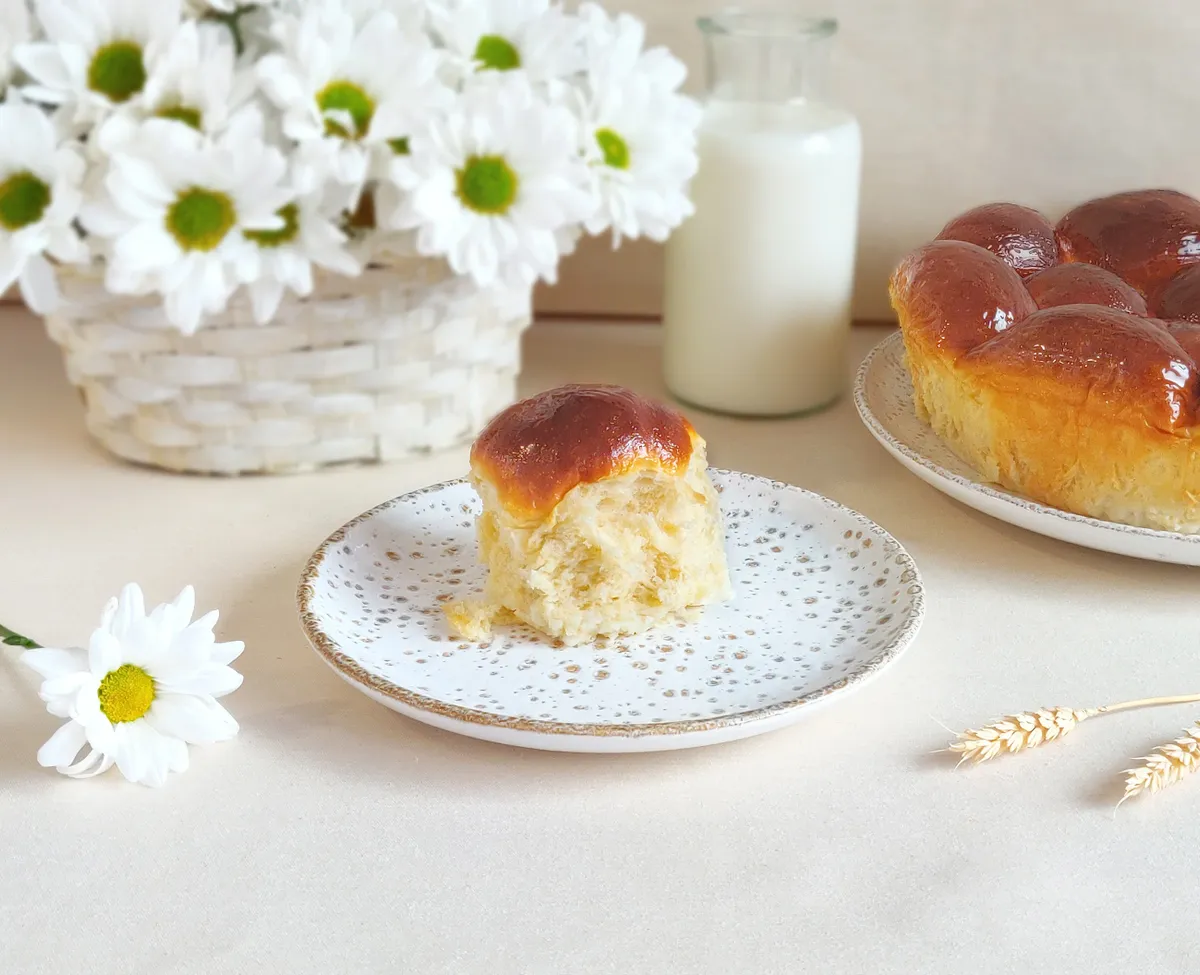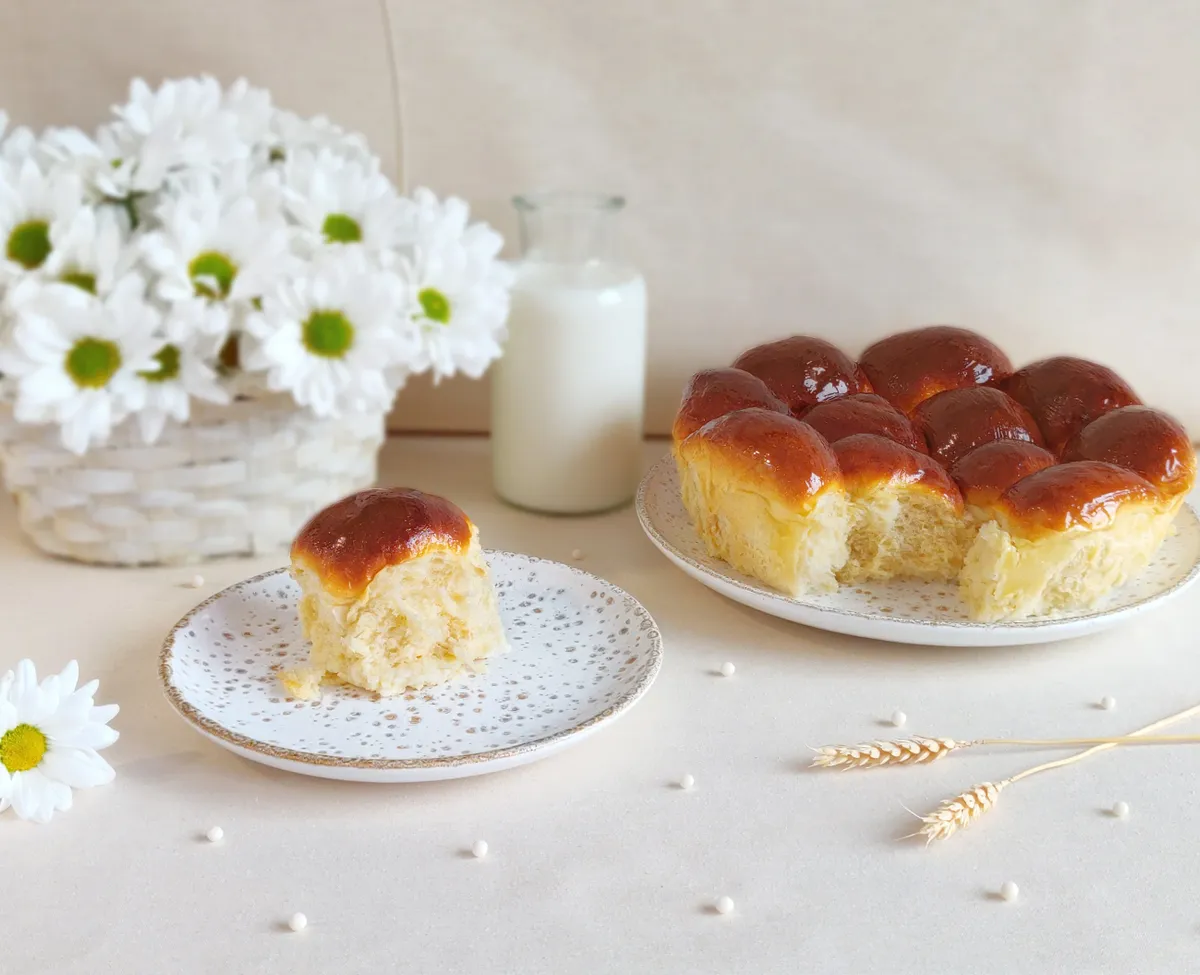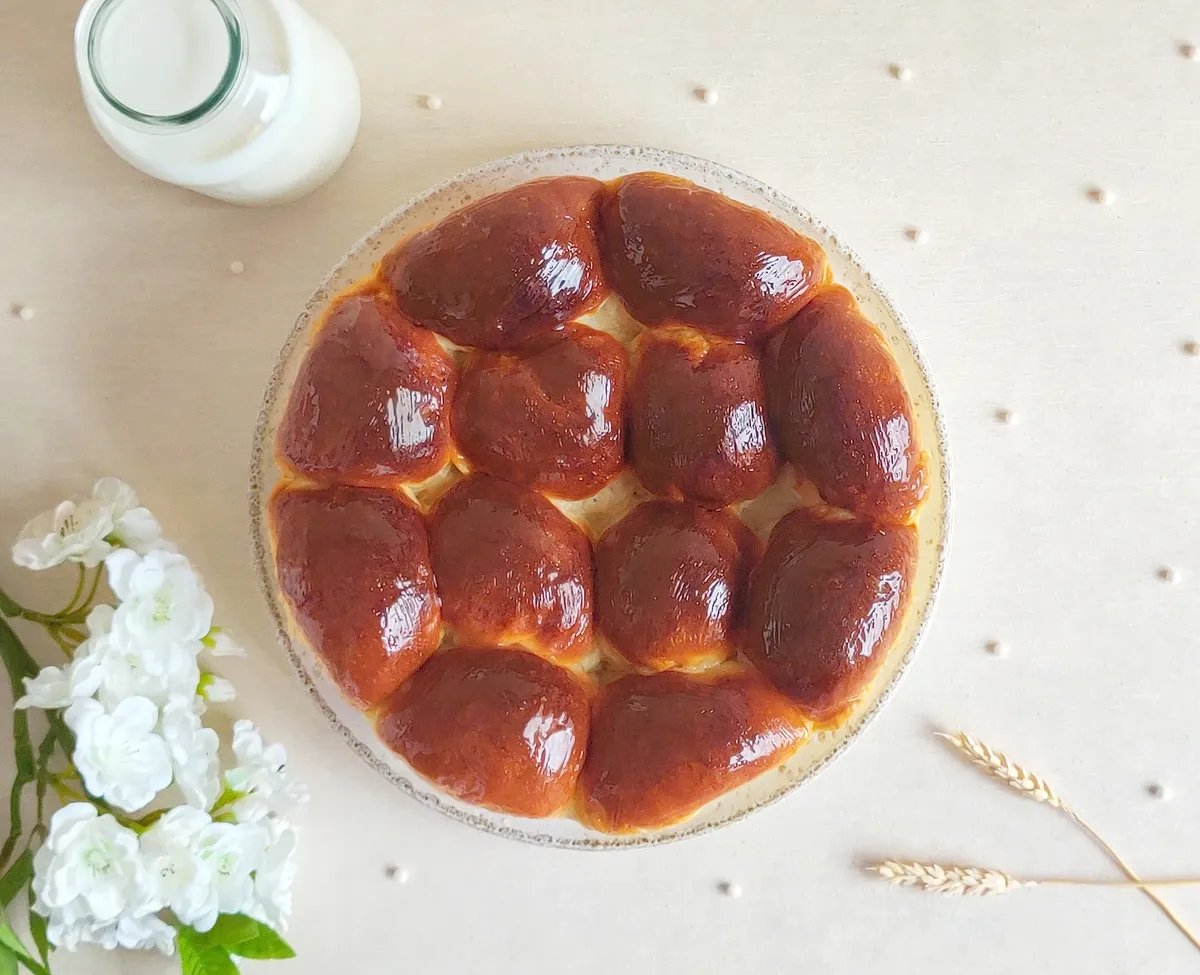Ingredients 

Yields
12 buns


Featured ingredients:
Affiliate links. If you buy, we may earn a commission at no extra cost to you.
Milk bun dough
- 280 g strong or bread flour
- 175 g whole milk
- 35 g butter
- 30 g egg yolk (2)
- 30 g vanilla or white sugar
- 20 g powdered milk or strong flour
- 20 g condensed milk or sugar
- 9 g fresh yeast
- 5 g salt
Assembly
- 150 g whole milk
- 20 g vanilla or white sugar
- Neutral gloss

 albertoimizcoz
albertoimizcoz















